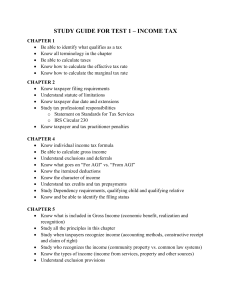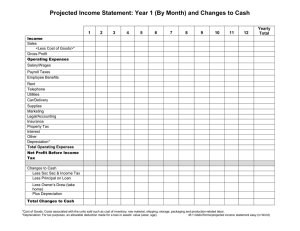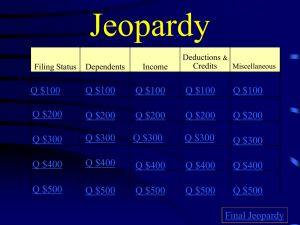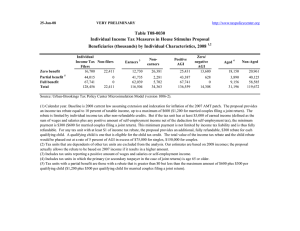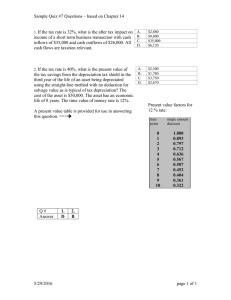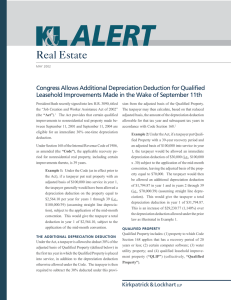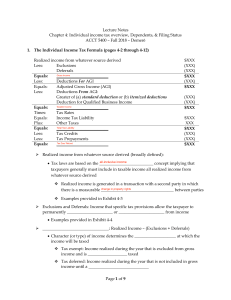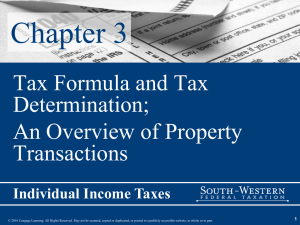Economic Stimulus Act of 2008: Fact Sheet
advertisement
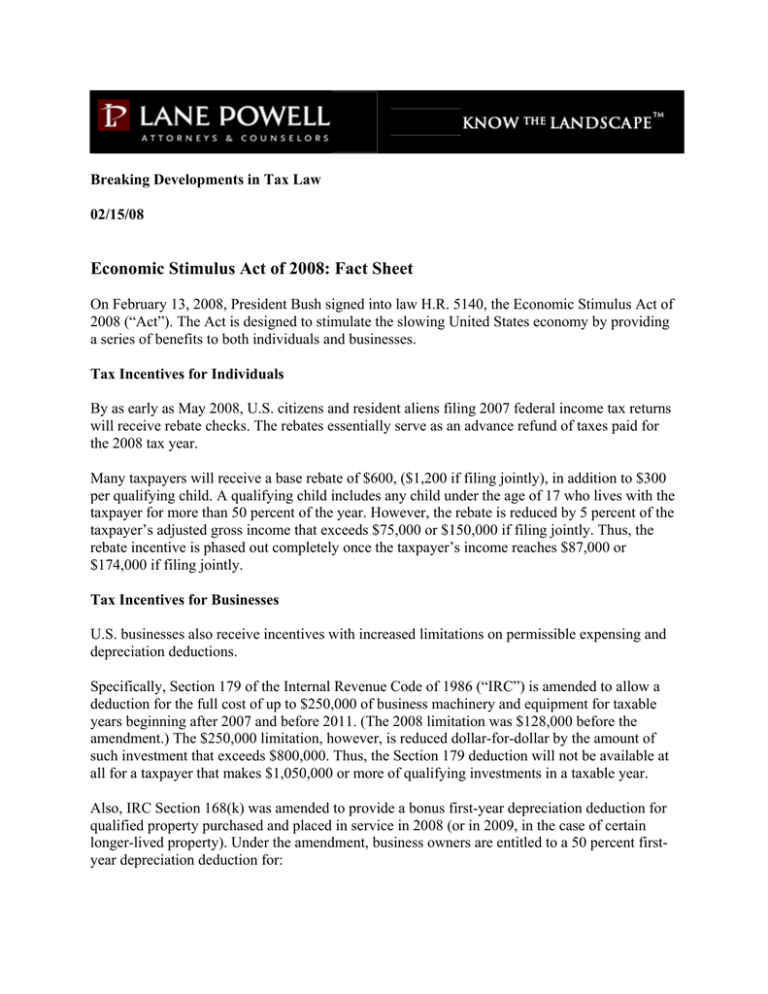
Breaking Developments in Tax Law 02/15/08 Economic Stimulus Act of 2008: Fact Sheet On February 13, 2008, President Bush signed into law H.R. 5140, the Economic Stimulus Act of 2008 (“Act”). The Act is designed to stimulate the slowing United States economy by providing a series of benefits to both individuals and businesses. Tax Incentives for Individuals By as early as May 2008, U.S. citizens and resident aliens filing 2007 federal income tax returns will receive rebate checks. The rebates essentially serve as an advance refund of taxes paid for the 2008 tax year. Many taxpayers will receive a base rebate of $600, ($1,200 if filing jointly), in addition to $300 per qualifying child. A qualifying child includes any child under the age of 17 who lives with the taxpayer for more than 50 percent of the year. However, the rebate is reduced by 5 percent of the taxpayer’s adjusted gross income that exceeds $75,000 or $150,000 if filing jointly. Thus, the rebate incentive is phased out completely once the taxpayer’s income reaches $87,000 or $174,000 if filing jointly. Tax Incentives for Businesses U.S. businesses also receive incentives with increased limitations on permissible expensing and depreciation deductions. Specifically, Section 179 of the Internal Revenue Code of 1986 (“IRC”) is amended to allow a deduction for the full cost of up to $250,000 of business machinery and equipment for taxable years beginning after 2007 and before 2011. (The 2008 limitation was $128,000 before the amendment.) The $250,000 limitation, however, is reduced dollar-for-dollar by the amount of such investment that exceeds $800,000. Thus, the Section 179 deduction will not be available at all for a taxpayer that makes $1,050,000 or more of qualifying investments in a taxable year. Also, IRC Section 168(k) was amended to provide a bonus first-year depreciation deduction for qualified property purchased and placed in service in 2008 (or in 2009, in the case of certain longer-lived property). Under the amendment, business owners are entitled to a 50 percent firstyear depreciation deduction for: • • • • Tangible property with a recovery period of 20 years or less; Computer software; Utility property; and Qualified leasehold improvement property. The bonus depreciation rule generally does not apply to property acquired under a pre-2008 contract. For more information, please contact the Tax Law Practice Group at Lane Powell: 206.223.7000 Seattle 503.778.2100 Portland taxlaw@lanepowell.com www.lanepowell.com We provide the Tax Law Hotsheet as a service to our clients, colleagues and friends. It is intended to be a source of general information, not an opinion or legal advice on any specific situation, and does not create an attorney-client relationship with our readers. If you would like more information regarding whether we may assist you in any particular matter, please contact one of our lawyers, using care not to provide us any confidential information until we have notified you in writing that there are no conflicts of interest and that we have agreed to represent you on the specific matter that is the subject of your inquiry. Copyright © 2008 Lane Powell PC www.lanepowell.com Seattle - Portland - Anchorage - Olympia - Tacoma - London 2
